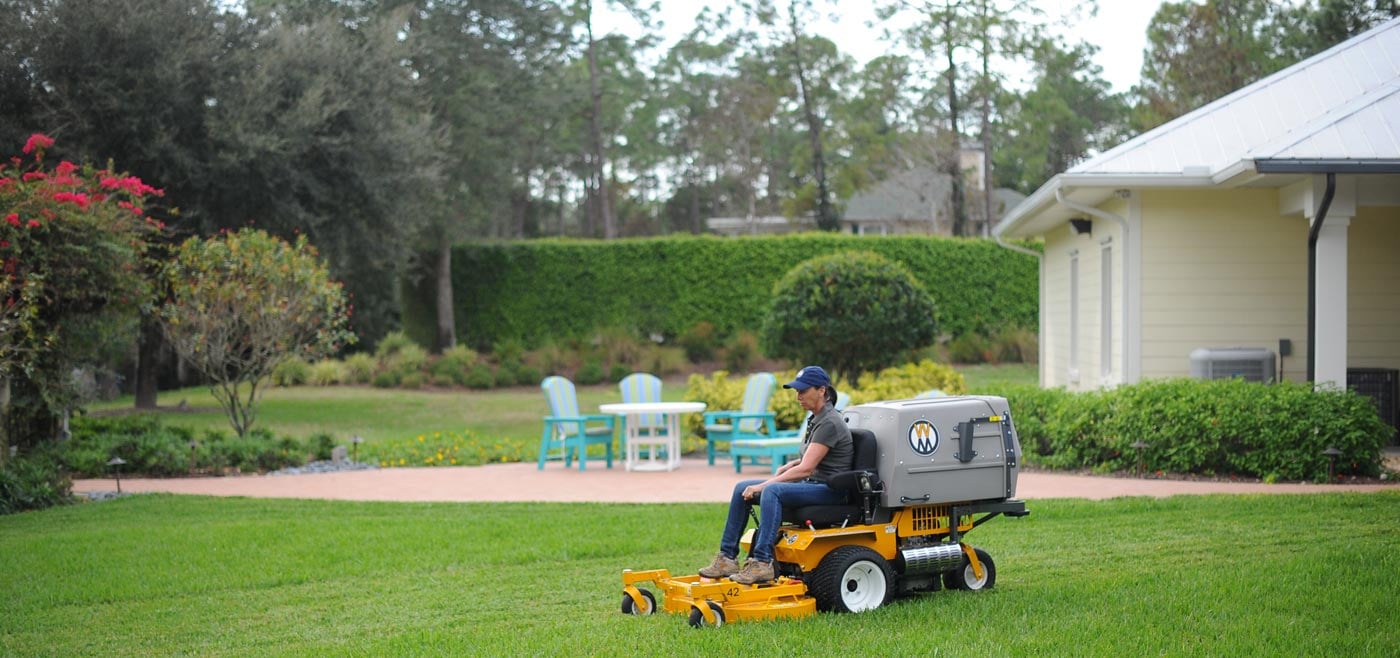When Walker Mfg. introduced its first lawn mower in the late 1970s, the company was committed to producing a compact, maneuverable machine that would be unsurpassed in performance. Over the years, Walker Mfg. never lost that commitment. Its mowers today - still compact and maneuverable - continue to outperform larger competitors.
The story of the Walker Mower's evolution has been told before, but what hasn't been mentioned is the direct relationship between the success behind these mowers and the people who operate them to make a living. What is that relationship? Simply this: You don't have to be big to be successful. There are ways to compete when your competitors have more resources and are many times more powerful.
Green Consolidation
The impetus for this discussion is the trend toward consolidation in the green industry. It seems as though every week brings news of another merger. The logic behind consolidation is quite simple.
From the buyers' (consolidators') point of view, consolidation gives them an instant presence in a market where they previously had no presence at all.
There are also real benefits to being big: economies of scale, more purchasing powers, and more money for advertising and promotion.
From the sellers' point of view, the idea of being rewarded right now for years of hard work is attractive. And if they decide to stay on, the additional resources present new opportunities.
Consolidation from the sellers' vantage, however, isn't always what it's cracked up to be, but that discussion can wait. What can't wait are some thoughts for smaller companies left to compete with these new "giants."
Smaller Companies Have Their Strengths, Too
The fear is that these new companies will come in and offer a myriad of services at a price your customers can't afford to ignore. In other words, they will be able to buy market share at your expense.
Fortunately, it is not a one-sided issue - big operations have their strengths, but smaller ones have their strengths, too.
If small or midsize companies fail to take advantage of their strengths, and similarly fail to take advantage of their new competition's weaknesses, business and market share will be lost. But if they focus in on their markets, deliver service second-to-none and continue to nurture customer relationships, market share may just as well go the other way. Here's why.
• Big companies tend to lose focus. While their strength lies in their ability to offer several different kinds and levels of service, their weakness lies in the fact that they can't afford to focus in on one market, one customer base or one type of service. One way to compete successfully with large companies is to do one thing better than they ever can.
Walker Mfg. is a prime example. The company doesn't try to manufacture a full line of walk mowers and riders. It simply works on enhancing a line of compact, zero-turn mowers. This focus has allowed management to give the mower's development its full attention, from engineering and manufacturing to marketing, distribution and service.
The same formula will work for smaller lawn maintenance companies. Success will go to those who focus in on a tight niche, who direct their efforts and resources toward filling the needs of a particular type of customer, providing a particular kind or level of service the larger companies are incapable of providing.
• Large corporations move slower than smaller ones. It takes time for decisions to trickle down from ownership to management, or for requests to travel up and down the corporate ladder. It's no secret that some of Walker's larger competitors have been trying to develop a compact, zero-turn mower for years. The fact that Walker had a 15- to 20-year head start put those larger competitors at a competitive disadvantage - one that has become more exaggerated as time ticks by.
The truth is, large companies, whether they're in manufacturing or lawn maintenance, often have to go through a laborious process to get ideas approved and finalized. If a customer asks a small mowing contractor to provide an additional service or step outside the bounds of a bid to enhance the property, the decision is an easy one. The same can't be said for large organizations where decisions are not made at or even close to the grass roots level.
• Large companies have an inherent inability to communicate effectively with customers. Lawn maintenance is a relationship business. Anyone in this business understands the importance of being accessible to customers. Customers need to know they are only a phone call away from a decision-maker. And it can't hurt if that decisionmaker is the owner or president of the company. Walker Mower owners, for example, are only a phone call away from the company president; the same can't be said for customers of larger mower manufacturers.
The unfortunate reality is large companies that lose contact with customers often lose relationships that have been built on understanding and trust.
Attack, Attack, Attack
So if a big competitor comes into your neck of the woods, don't shrink away and hand over your customers. Strive to reinforce those things that have made you successful over the years... and keep your ears to the ground to discern where you may garner other competitive advantages.
For starters, review why you are in business, revisit your mission statement and who your target customers are, and assess your company's strengths and weaknesses. Then, focus in on your target customers and the services you provide. Make sure to capitalize on your strengths, and work to take advantage of the competition's weaknesses.
In the short run, don't get discouraged because someone is offering a similar service or services at a price point below yours. The old adage applies in lawn maintenance just as it does in any other business - customers get what they pay for. If you can provide superior service at a fair price in a particular market, then your hold on that market should be secure for years to come.
Remember, big is not always better. In a free enterprise system, the entrepreneurial spirit often tips the scale in favor of smaller companies.




 Site Search
Site Search



